
The Fed is Trying to Fix Inflation – Biden is Breaking it again
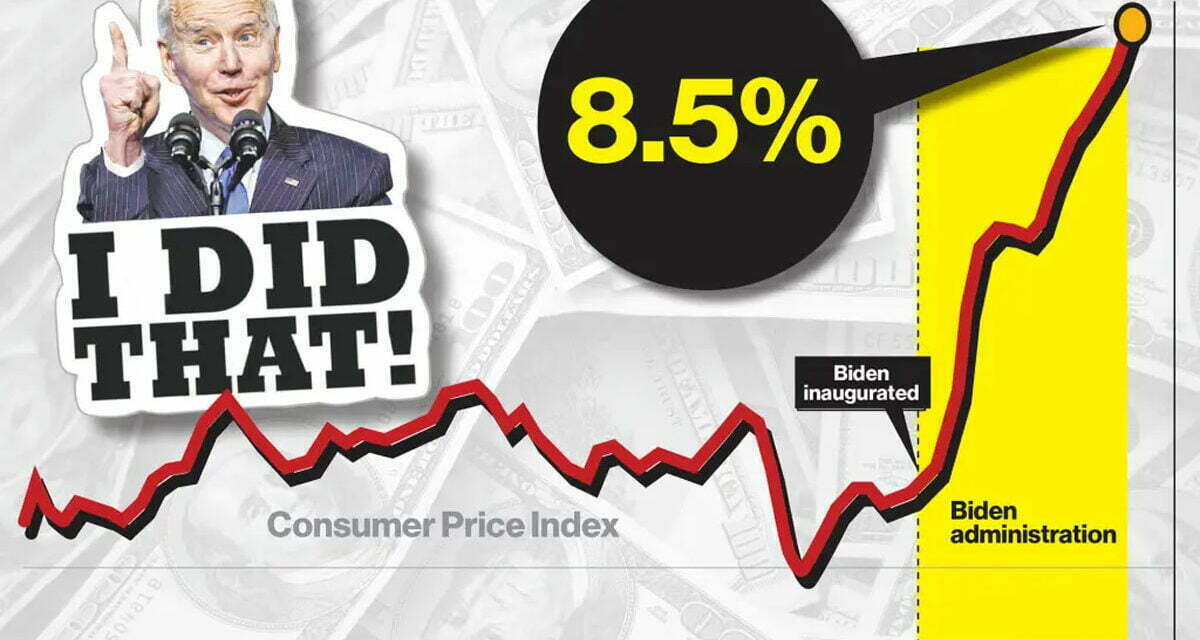
I know you have heard this a lot, but inflation means that people are trying to buy goods and services, when the production of goods and services can’t quite meet demand. Therefore some people pay more, and others do without.
The reason the Federal Reserve raises interest rates is to slow down businesses who want to borrow money to spend on expansion, and to discourage people from buying on credit. Moving the interest rates what seems to be a tiny bit slows down spending a tiny bit. We don’t want to do this fast, because we don’t want to slow people down beyond what is necessary, nor do we want an over-correction that might cause damage. In fact, the 0.75% increase is a rather shocking amount.
But now we have a $1.2 Trillion infrastructure bill that is going into effect. If you look at the chart below you will see that infrastructure spending because of this bill would consume an extra 1% of our GDP. Let’s assume that this is accurate.
So…
Where the Federal Reserve is attempting to reduce demand by raising rates so that people spend less, the Biden Administration has printed an extra $200 billion this year that will absorb production, making prices higher for its competition. The government will compete for workers, raw materials, services and productive management. The competition, in this case, is private industry which wants those workers and materials to build profitable enterprises.

This is massively inflationary. Even if we were not already experiencing inflation due to a massive upheaval from Covid and stupid policies by the Biden Administration, this spending alone would cause enough inflation to be concerned about.
And would it not be better for private industry to use the available resources, since the whole world knows that they utilize them more efficiently? I’m a big fan of Keynes, but his “multiplier effect” has long been overshadowed by the idea that while, yes, the government can stimulate the economy by spending more, private industry does it way more efficiently and profitably (where the profit percentage “multiplies” as well).
Do we need this infrastructure? Both sides of the political fence seem to agree that infrastructure upgrades are necessary. I have no issues with that, we are the greatest country in the world, in part because of our infrastructure.
But common sense should prevail. The excess government spending should be halted until inflation is under control. Every second that interest rates are high means an ever accelerating national debt that we have to service.
Assuming the Fed’s measures start to work, a six month delay in excess infrastructure expenditures should not hurt us in the long run.
Change my mind.







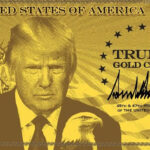
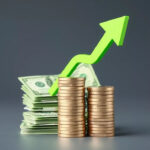


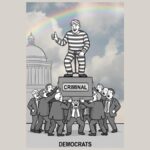











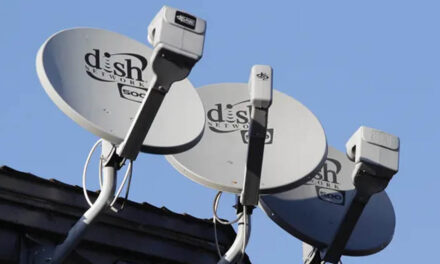


What else do you expect from a dumbass
He’s carrying out the wishes of his handlers in their plan to bring us into socialism
Socialism….interesting…..based on infrastructure improvements? Seems leaving that to the States, private industry, and private investors has been a total failure. So, whatever are you talking bout Snuffy?
Delay if?? Hell – KILL IT OUTRIGHT. >
Joe, The dumbasses who commented above have obviously never left the shores of the US (and you may be included in that group too). We do not have “great infrastructure”, we have some of the worst when it comes to the rest of the wealthy world. Obviously, this bill should have been passed 10 years ago when we were struggling out of recession, but it wasn’t. Delaying this for 6 months makes it more likely that it will be delayed again, which will allow more of our crumbling infrastructure to fail. Now is the time to begin implementation…
That is a good point, but the Biden administration doesn’t understand economics, so look out for some brutal times over the next year.
Biden doesn’t understand anything. Especially when he took showers with his daughter That was allegedly told by her
How to fix that is to quit electing democrats. Dumbass.
Joe, your grasp of economics seems limited to finding a single answer to a complex situation. Generally, this stuff is trickier than that. When you say: “I know you have heard this a lot, but inflation means that people are trying to buy goods and services, when the production of goods and services can’t quite meet demand” you are only partly correct in this case.
There can be demand-based inflation. I agree, it is going on. Most economists classify inflation into categories like: Demand-Pull inflation, Cost-Push inflation, and Built-In inflation. Most experts contend there’s a couple of these going on. Like you, I prefer to simplify the definition, as I have noted, IMO, inflation is the result of too much money; that cause is included in each category. There is no inflation until someone buys something. If a lot of them are willing to pay an inflated price, they have too much money, Recession is the opposite. It is this IMBALANCE of money more than it is a particular price. It’s the simplest overarching answer.
One cause of too much money is monetary policy, the Fed’s domain, where one might say the Fed came to the table late. Another cause is fiscal policy — well, we have that in spades since Obama, then triple-down by Trump, and steady-on and well over the top by Biden. Demand-Pull: during the Trump years, we were showered with free cash while we were locked up and just couldn’t spend it all. We also put more cash into savings, especially the rich, due to massive tax cuts. Since the upper classes didn’t need it, they didn’t spend it and savings grew. Then Biden gave us more cash as we were set free from our prisons and we spent the free money accordingly. Even those of us sitting on it couldn’t take it anymore and the Kraken was unleashed. I point to US savings which in 2020 rose to close to over 16%, the last peak was 12% in 2012, typically it’s under 7%, way under often. We created, we watched, and then we released the inflation Kraken as we emerged from our seclusion with money to burn, the Fed doing nothing until the fire was too hot. That’s not a production problem, that’s a demand tsunami.
At the same time, we also have cost-push inflation as many costs have risen due to drought, war, supply chain problems, you name it, but much of this is the pandemic. IOW, while much of this was at the threshold under Trump, we hit a tipping point under Biden, especially with the war. Joe, I see this inflation in a couple of categories, with a number of causes, not just demand-pull.
You point to the infrastructure act as a coming inflationary attraction. I say not necessarily so. Why Trumplicants are so against infrastructure I don’t know. I think the answer is simple: it starts with the fact that any dollar you give the government, they will spend. Always have. And when since Carter has that caused inflation Joe? History alone sort of pokes a hole in your theory there. IMO, the infrastructure bill will only cause inflation if they borrow too much which is an overall budgeting problem, not just an infrastructure bill problem. Budgeting problem in that we spending too much on everything — really doesn’t matter what, the question is: are we borrowing too much, not what we are spending it on per se. IMO, when you look at the budget, the largest line items are where one can start to find the largest cuts: defense, housing, education, government, health, and environment — in that order. But defense is twice the size of these other elements, combined.
Problem is, in these things, very hard to measure and impossible to set the bar on how much is too much. There are no rules, just general guidelines.
Trump’s deficits rose in his every year in office. His 2020 peak was over two times the deficit of The Great Recession. Biden’s first year began to bring that down —- not enough, not fast enough IMO. His budget plans reduce the deficit by over 60% this year, that’s still not enough, not fast enough. And given where we are with wars, etc., I doubt it. IMO, we are spending too much, but personally, infrastructure would be my last resort for cuts. I would start with defense, the biggest budget item, the lowest hanging fruit. And yes, I would cut things, we spend too much. IMO, infrastructure is not an expense, but it’s an investment that will pay off in future profits. Like Clinton investing in city police, the investment paid off as people returned to the city, spent money, and the urban economies resurged. That, IMO, is infrastructure. And yes, the pay-off won’t come for years. But I like investing in things that offer tangible economic growth.
On Fed controls. If you believe in the too much money problem, then the Fed trying to tame the tiger by adjusting the cost of borrowing money, the interest rate, is a round-bout way to go at that. Fact is, the Fed has never been able to accurately count the money supply, their response is to curtail it by attacking loans. I don’t have a better answer, but this is, at best, an imperfect solution. US consumer debt has been a slow steady rise, not bad. But mortgage debt is through the roof and that foreshadows a pretty dire downturn in a rebounding housing market. That’s recessionary and could be a huge effect. First will be a flurry of buys as buyers attempt to grab a mortgage before rates skyrocket, house prices will drop to meet the new rates, and then the crash as buying slows.
Bottom line: there are three types of inflation, we are in two, not one. There are numerous causes, and we are seeing a bunch. And the Fed’s controls are a roundabout way of getting at the problem. What’s next? As I keep saying, wherever we are in the economy, we have never been there before, and, on this one, that is certainly true. What I am watching is:
– excess bank reserves: this is a huge untapped pile of cash that the banks can loan at any second to make more money than we US taxpayers are paying them NOT to loan it out. It is out of the money supply, on the bench, so to speak. As loan interest rises, banks will look to make more profit from this idle cash. It’s about the size of all the stimuli combined —- get where it came from? Remember that savings increase?
– deficit/debt: the debt/gdp ratio is at an all-time high. Trump handed Biden a 137% ratio. Last time it cleared 100 was for a second under Obama and before that, WWII debt, which took from 1945 to Reagan to reduce. That’s a long time. Biden has brought it down, but again, not enough, not even close and not fast enough, and he was lucky, another pandemic effect. Why does this matter? If foreign investors pull their money, our economy crashes like we have never seen. Far worse than the Bush crash. Far worse than the Depression. It’s a game over scenario, burn your money for heat. Again, we don’t know the magic number here. 100% was the guardrail and Trump smashed that without a penalty. Point is we don’t know when investors will pull out, so far, our saving grace is that we are “queen of the pigs,” there is no better place to park cash without risk, but every day we put up a sign: “more risk ahead.” This will not be a whimper, it will just be over. Money worth nothing. Barter time.
Joe, complex issue that I am sure I have not covered well. But just saving it’s demand shortchanges the complexity of the solution. Biden can’t fix this. He alone didn’t cause it. Nor did Trump or Obama before him. We have never been here in the economy before. Before we paid interest on excess reserves, there was $50B there, today it’s over $3T today, having doubled as Trump borrowed to make us feel he was a business maven. That’s a brand-new element in our economy with little controls. Likewise, our debt/gdp ratio has never been this high, we don’t know the tipping point, and last time took over 35 years to bring down. If it tips, it’s game over. Changing the Fed rate will not change these, it may even unleash the excess reserves which will be “too much money” on steroids laced with crack.
It’s incredibly complex and chances are, in the future, consumers will become afraid, spending sphincters will contract, we will become terrified, and we will cause our own recession. If we are lucky. If we are unlucky, a real recession will hit with us having less tools to combat it in the toolbox since we loaned most of them out in previous stimuli.
I am not impressed by Yellen, and Biden’s team seems a less brilliant than Obama’s dream team or Bush’s squad. How Bush escaped disaster is pure brilliance, luck, and critical decision making. How Trump avoided it is pure luck. And now Biden stepped in it but I don’t see him with any where’s close to clean shoes yet. And hearing Yellen saying “shucks, what a suuuuprise, well, teachable moment, lesson learned,” is not confidence inspiring.
You haven’t covered it well because you are trying to fit your narrative to defend Joe Biden. The twists and turns in your narrative are amazing. But your premises are wrong and your conclusions are wrong.
Joe: You have preferred a summary without specifics. Basically, you are saying you are correct and I am incorrect.
Where are any specific facts I have wrong? Where does the narrative stray to defend Biden? I can understand that you can’t follow the “twists and turns” of the economy, but certainly the concept of interest can not allude you?
On the other hand, you were given quite a few specifics about your misinformed mistakes. I provided them for your response which you basically declined through diversion. Paramount is your delusion that the US Treasury pays floating rates on it’s Treasuries so that the current debt interest is instantly calculated on a Fed rate increase. That’s bogus, not true.
You even computed the new uplifted amount, which I gather you did yourself since no real economist or financial guy would provide such a boneheaded example. That’s really funny seeing you calculating away, going “eureka!.” which is as stupid as my reply how my current fixed rate mortgage increase because of the Fed rate hike. You actually double-down and never walked back your mistake. Did you even think to find a real economist saying a similar thing? Not always good to be special :>)
I can understand how the concepts of excess reserves and debt/gdp ratio’s look like confusing twists to you, but I would think over $3T in “parked cash” with zero restrictions on it entering the economy would at least catch your interest: CRICKETS. Twice. But I can see where that might confuse a guy who is still working out the concept of interest on current debt.
The rest of your tome is BUSTED based on the fruit of your oft-repeated poisonous premise of the first order in your politically biased narrative to discredit Joe Biden which really makes your conclusion irrelevant, if, for not other reason, that your tainted primary premise. IOW, you told a fib and when faced with the truth, doubled down.
Now, you did say I was at fault in furtherance of my support for Joe Biden, the duly elected President of The United States (suck on it, Trumplicants). If you saw a Biden defense in there, you are smoking something. You still a Dobbie Brothers fan? Because here are some quotes that seem to say whatever you got, it’s the good stuff.
“Then Biden gave us more cash”
“the Fed doing nothing”
“we hit a tipping point under Biden, especially with the war.”
“Biden’s first year began to bring that down —- not enough, not fast enough IMO. His budget plans reduce the deficit by over 60% this year, that’s still not enough, not fast enough.”
“Biden can’t fix this. He alone didn’t cause it. Nor did Trump or Obama before him.”
“I am not impressed by Yellen, and Biden’s team seems a less brilliant…”
Bottom line: what specific issues do you have? Can you clarify? And do you still believe your interest payment numbers for increased payments on a fixed-interest asset due to a Fed rate hike? I hear that next week we will bring the debt interest payments to $0 by lowering the Fed rate to $0 (just kidding, there is no floating interest rate on the debt.)
Joe, how us that truth, if you dare, since you haven’t in at least three tries.
Sorry Joe, there’s some terrible spelling in that one. Lazy is the only excuse.